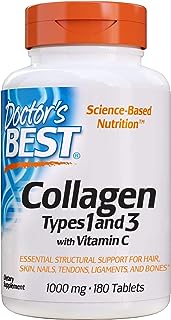Types of Supplements: Unveiling the Latest Trends and Insights for 2024
Key Takeaways
| Topic | Summary |
|---|---|
| Herbs & Botanicals | Growth in the usage of herbal and botanical supplements such as ashwagandha, elderberries, and mushroom extracts. |
| Nootropics & Beauty | Rising demand for products that support cognitive functions and inner health, leading to novel product formats. |
| Magnesium in Minerals | Magnesium takes the spotlight for its mental health benefits and its role in improving sleep issues. |
| Supplement Categorizations | Trend towards personalized, blended formulas that address individual health goals over traditional multivitamins. |
| Sports Nutrition | Notable increase in sports nutrition sales, thanks to new functional formats enhancing performance and recovery. |
| Women’s Health | Enhanced focus on supplements tailored for women’s health concerns, such as menopause and digestive health. |
| Fiber & Microbiome | Increased interest in fiber for its benefits on the microbiome and digestive wellness. |
Ah, the world of dietary supplements. It’s as vast as it is intricate, evolving continuously with the latest trends and health revelations. Gone are the days when a simple daily multivitamin would suffice. Today, we’re entering an era rich in personalized nutrition, where the spotlight shines on tailored health solutions from herbs and botanicals to bespoke mineral concoctions. So, have you ever wondered what kinds of supplements are capturing the hearts (and health) of people in 2024? Let’s peel back the curtain and dive into the fascinating world of dietary supplements, where the old meets the new, and science meets Mother Nature’s pantry.
Exploring the Rise of Herbs & Botanicals in Dietary Supplements
Herbs and botanicals have made a significant leap from the back shelves of health food stores straight to the forefront of the dietary supplement scene. Take ashwagandha, elderberries, and mushroom extracts, for example. Once nestled in the realm of traditional folk medicine, they’re now taking center stage for their potent health benefits. Have you ever considered slipping some ashwagandha into your evening tea to wind down? Or perhaps boosting your immune system with elderberry syrup seems like your cup of tea? The shift towards these natural powerhouses is undeniable. With consumers increasingly seeking out nature’s remedies, it’s no surprise that these supplements are enjoying their moment in the sun.
The Emergence of Nootropics and Beauty-from-Within Supplements
In our fast-paced world, who wouldn’t want a cognitive boost or that elusive inner glow? Enter nootropics and beauty-from-within supplements, a category that has seen a surge in popularity. These products promise not just to enhance your brain function but also to imbue your very essence with vitality and youthfulness. It sounds magical, doesn’t it? And with suppliers innovating new, convenient formats, incorporating these supplements into your daily routine has never been easier. But do they live up to the hype? That’s the question on everyone’s lips.
Importance of Magnesium in Mineral Supplements
In the realm of minerals, magnesium has emerged as a superstar. It’s touted not just for its role in supporting mental health but also for helping those struggling with sleep issues. But the benefits don’t stop there. Doctor’s Best Collagen Types 1 and 3 with Peptan is a prime example of how combining key minerals and collagen can support overall well-being, from bone health to skin elasticity. Are we perhaps witnessing the dawn of a holistic approach to supplements, where one pill tackles multiple concerns?
The Revolution of Supplement Categorizations
Gone are the days when one-size-fits-all supplements would crowd the shelves. Today, we’re witnessing a fascinating shift towards blended formulas tailored to individual needs and biology. It’s a revolution in the making, promising personalized health solutions that cater to your unique lifestyle and goals. But with this customization comes the question: Are we ready to embrace the complexity and beauty of our individual health journeys? Only time will tell.
Sports Nutrition Boom: A Deep Dive
The sports nutrition sector has not just grown; it has exploded. With everything from powders to functional beverages, consumers are spoiled for choice when it comes to enhancing their performance and recovery. This surge isn’t just about the products themselves; it’s a testament to a growing culture that celebrates strength, endurance, and personal achievement. Whether you’re a professional athlete or a weekend warrior, something is empowering about having the right nutritional tools at your disposal.
Focus on Women’s Health Supplements in 2024
The spotlight on women’s health supplements has grown brighter in 2024, illuminating areas once overlooked. From empowering women going through menopause to boosting libido and supporting digestive health, the industry is finally addressing women’s unique health needs with the seriousness they deserve. It’s a step towards not just recognizing but celebrating the complexity and strength of women’s bodies.
The Role of Fiber and Probiotics in Enhancing the Microbiome
Let’s talk about gut health, shall we? As it turns out, fiber and probiotics are now the stars of the show, thanks to their undeniable benefits for our microbiome. With more consumers understanding the critical role of gut health in overall well-being, the demand for products that support a thriving digestive system is at an all-time high. It seems that a happy gut really does equal a happy life.
Adopting a Health Span Perspective in Dietary Supplements
“Health span” over “lifespan”—that’s the new mantra. It’s not just about adding years to life but adding life to those years. This shift in perspective is reshaping the dietary supplement industry, encouraging a focus on vitality, activity, and joy in daily pursuits. It’s a reminder that health is not just the absence of disease but the presence of well-being, in every sense of the word.
As we reflect on the evolving landscape of dietary supplements in 2024, it’s clear that our journey toward health and well-being is as diverse as it is personal. From herbs and botanicals to targeted mineral formulas, the promise of a more vibrant, healthier life is within our grasp. As we navigate this ever-changing terrain, perhaps the most crucial supplement we can take is knowledge—knowledge that empowers us to make informed choices for our bodies and our lives.
Regulation of Dietary Supplements: What Consumers Should Know
In the quest for health, it’s easy to get swept up in the latest supplement craze. But before you jump on the bandwagon, it’s crucial to understand the regulatory landscape surrounding these products. The Food and Drug Administration plays a pivotal role in this arena, ensuring that supplements are safe and their claims are not misleading. But remember, the FDA does not approve dietary supplements for safety or effectiveness before they hit the market. So, what does this mean for you, the consumer? It means that doing your homework, consulting healthcare professionals, and staying informed are more important than ever. In a world brimming with promise, knowledge is your most trusted guide.
Reporting Adverse Events: Ensuring Supplement Safety
With great power comes great responsibility. As consumers, we wield the power of choice. But with that choice comes the responsibility to report any adverse effects experienced from supplements. By doing so, we not only protect ourselves but also contribute to the safety of the community at large. The FDA encourages consumers to report negative side effects, ensuring that problematic products can be addressed. It’s a collective effort—a partnership between consumers, manufacturers, and regulators—to uphold the highest standards of safety and wellness.
Related Articles
- 12 Best Supplements for Migraines: Prevention Power-Up
- Thyroid Health and Weight Loss: Enhancing Metabolic Balance with Thyroid Supplements
- Vegan Supplements for Joints: Your Cartilage’s New Pal
- FDA 101: Dietary Supplements
- Dietary Supplements: What You Need to Know – Consumer
- Supplements: What You Really Need
- Dietary supplement | Definition, Types, Regulation, & Safety
In the end, the landscape of dietary supplements in 2024 is a testament to our collective desire for health, vitality, and longevity. Through informed choices, open dialogues, and a community-oriented approach to well-being, we can navigate this vibrant ecosystem. So, as we explore these trends and innovations, let’s remember the ultimate goal: a fulfilled, healthful life, enriched not just by what we take but by how we live.
Frequently Asked Questions
Q: What are dietary supplements and how can they help?
A: Dietary supplements are products intended to supplement the diet with vitamins, minerals, herbs, amino acids, or other dietary ingredients. They can help fill nutrient gaps and support overall health.
Q: How do I know if a product is a dietary supplement?
A: Products labeled as “supplement facts” are typically dietary supplements, as opposed to those labeled as “nutrition facts” which are for conventional food products.
Q: What should I look for on a dietary supplement label?
A: When checking a dietary supplement label, look for information about the serving size, amount per serving, and % Daily Value (%DV) of nutrients, along with any specific health claims or warnings.
Q: Can dietary supplements be harmful?
A: While most dietary supplements are safe when taken as directed, it’s important to be cautious of potential interactions with medications or overconsumption of certain vitamins and minerals, so it’s advisable to consult with a health care provider.
Q: How do I report an adverse event related to a dietary supplement?
A: If you experience any negative side effects or reactions from a dietary supplement, you can report it to the office of dietary supplements or through the gov website to help track and address any potential issues.
Q: What are some common types of dietary supplements?
A: Common types of dietary supplements include calcium, fish oil, vitamins, minerals, and various herbal extracts that come in forms such as capsules or tablets.
Q: Where can I find reliable information about dietary supplements?
A: The Dietary Supplement Health and Education Act (DSHEA) regulates the supplement industry, and reputable sources such as the gov website or health care providers can provide reliable information on dietary supplements.


